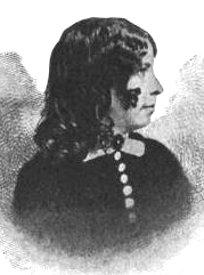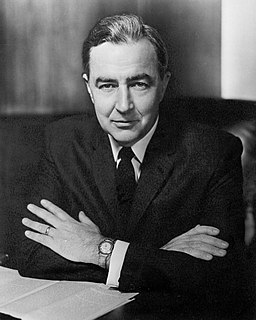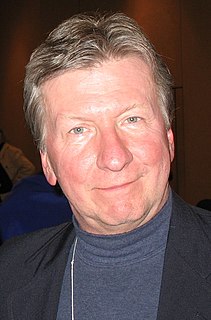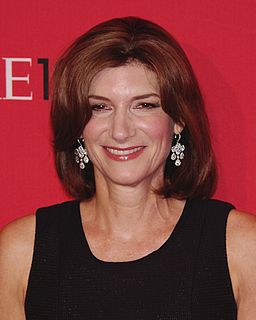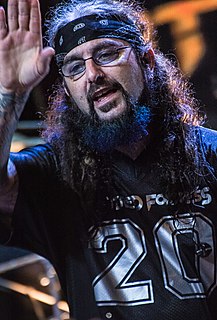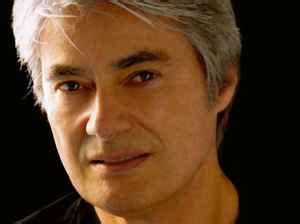Top 467 Publishers Quotes & Sayings - Page 8
Explore popular Publishers quotes.
Last updated on November 12, 2024.
I like the idea of standalone novels. I always found with series of books, it's something that publishers love obviously because they can make a lot of money and they build an audience from book to book, but I don't like that as a writer. I prefer the idea of just telling a story, completing it within your book, and moving on and not forcing a child to read eight of them.
The war between authors and publishers has been a conflict of ages. On the one side, the publisher has been looked upon as a species of Wantley dragon, whose daily food was the brain and blood of hapless writers. ... On the other side, the author has been considered, like Shelley, 'an eternal child,' in all that relates to practical matters, and a terrible child at that, - incapable of comprehending details, and unreasoanably dissatisfied with results.
Indeed, being a beginner is very difficult right now. Book publishers are in a crisis, sales are dwindling, and publishing houses are losing money, doing their best to survive. It's a sign of the times, the emergence of new kinds of entertainment -- there's nothing we can do about it. I don't think books will perish for good. They could become less widespread, though, falling even further behind movies and computer games. But we shouldn't be afraid of this, because books will always remain the entertainment of choice for intelligent people, of whom there are still many in this world.
Authors and publishers want fair compensation and a means of protecting content through digital rights management. Vendors and technology companies want new markets for e-book reading devices and other hardware. End-users most of all want a wide range and generous amount of high-quality content for free or at reasonable costs. Like end-users, libraries want quality, quantity, economy, and variety as well as flexible business models.
From 1940 to about 1960, I had been writing just regular comics, the way my publishers wanted me too. He didn't want me to use words of more than two syllables if I could help it. He didn't want me to waste time on worrying about good dialogue or characterization. Just give me a lot of action, lot of fight scenes.
I think in daily newspapers, the way comic strips are treated, it's as if newspaper publishers are going out of their way to kill the medium. They're printing the comics so small that most strips are just talking heads, and if you look back at the glory days of comic strips, you can see that they were showcases for some of the best pop art ever to come out.
I had a job, I got ill, I left the job to get better, and while I was getting better, I wrote some stories. I sent them to some publishers and the fifth one who replied said they'd take them. Then they went bankrupt. Then that bankrupt publisher got bought by a bigger firm. Story: in the end is the beginning, and in the beginning is the end.
There is danger in the concentration of control in the television and radio networks, especially in the large television and radio stations; danger in the concentration of ownership in the press...and danger in the increasing concentration of selection by book publishers and reviewers and by the producers of radio and television programs.
Today there are a huge number of think tanks working on poverty-related issues; there are books written on the topic; and university centers being created to study poverty. But, at the same time, the media has a terribly hard time with this issue; it's very hard to convince editors and publishers to devote resources to complex investigations of the lives of America's poor. And, as a result, too often poverty is portrayed in stereotypes, in sound bites, in a few pat images rather than in its full Technicolor complexity and diversity.
Building an Effective Women's Ministry is a brand new book from Harvest House Publishers. Sharon Jaynes, vice president of Proverbs 31 Ministries, is the author. This book has planning helps for beginning and maintaining your women's ministries plus ideas for programs and special events. You know which section I turned to first, don't you? That's right. The idea section. Sharon has some good ideas. Great cover and helpful contents!!!
I had an idea for a medical conspiracy thriller. Since it was non-horror, I didn't want the publishers and editors bringing a lot of baggage - my history as a genre writer in the SF and horror fields, for instance - to the novel when they read it. I wanted them to consider the book solely on its own merits. So I called myself Colin Andrews. I was tired of seeing my books at floor level. Not that Herman Wouk and Phyllis Whitney and William Wharton are bad company, but I wanted to be up at eye level for a change, where people with bad backs could get a chance to see my books.
If you would like to write better than everybody else, you have to want to write better than everybody else. You must take an obsessive pride in the smallest details of your craft. And you must be willing to defend what you've written against the various middlemen - editors, agents and publishers - whose sights may be different from yours, whose standards not so high.
We were to found a University magazine. A pair of little, active brothers-Livingstone by name, great skippers on the foot, great rubbers of the hands, who kept a book-shop over against the University building-had been debauched to play the part of publishers. We four were to be conjuct editors and, what was the main point of the concern, to print our own works; while, by every rule of arithmetic-that flatterer of credulity-the adventure must succeed and bring great profit. Well, well: it was a bright vision.
Distributed print is arguably our biggest challenge as a machinery supplier, as more publishers find efficiencies in transferring print production to remote printers and supersites. But our signature Goss flexibility and adaptability allow us to meet that challenge head-on with relevant technologies, services and expertise that continue to provide customers with an edge.
Times have changed since a certain author was executed for murdering his publisher. They say that when the author was on the scaffold he said good-bye to the minister and to the reporters, and then he saw some publishers sitting in the front row below, and to them he did not say good-bye. He said instead, "I'll see you again."
In the war time many of the publishing houses were privately owned, a single publisher or a publisher and a few associates who were responsible for everything. They could take whatever risks they wanted, could essentially publish what they liked according to their taste. Publishers today are working for big corporations. They have different pressures. I don't think they can make decisions quite as independently as they used to be able to. They have more corporate and financial responsibilities weighing on them. They're not free to go broke or go to jail.
I didn't write professionally at first. It took me nine years to get anything published. At the beginning I mostly wrote picture books, which were rejected by every children's book publisher in America. The first book of mine to be accepted for publication was ELLA ENCHANTED, and not one but two publishers wanted it. That day, April 17, 1996, was one of the happiest in my life.
But like all power, there are those who want to keep it for themselves. The world's entire scientific and cultural heritage, published over centuries in books and journals, is increasingly being digitized and locked up by a handful of private corporations. Want to read the papers featuring the most famous results of the sciences? You'll need to send enormous amounts to publishers like Reed Elsevier.
For educated Americans like Joseph Ellis, Vietnam is a special hang-up. I am an Englishman of exactly the Vietnam generation, a couple of years younger than Ellis; indeed, for reasons too complicated to explain here, I was nearly drafted into the US army in 1965. I know many Americans of my own age and, as much to the point, my own class - journalists, publishers, lawyers. And I don't think I know one who served in Vietnam.
That's absolutely true, but one problem with the digital revolution, which may tie into what I said earlier, is that there can be a collapse of quality. You may not have liked the decisions made by publishers in the past, you may not have liked the decisions made by magazine editors or newspaper editors in the past. At least there was some quality control
When I joined Time Inc., one of the things that was important to me was ensuring that our content is where consumers want to read it. The Apple newsstand is an important place where a lot of consumers are. And Apple is really becoming a good partner to publishers. We are confident we can deliver a experience for our readers that 's really good.
With My Dog-Eyes by Hilda Hilst got more exposure and reached far more readers than I ever expected. Even my editor at Melville House, who championed the project form the outset, told me she was surprised by the response. After this, editors began asking my opinion about which Latin American writers ought to be translated. I realized I had some cultural capital to spend, and I wanted to use it to introduce another author who might be considered a risk by conventional publishers. Michael Noll was at the top of my list.
Can a one judge sitting somewhere in a trial court issue an order that says nobody in the world is allowed to have, to use, to improve or to develop software for playing multimedia content without the permission of the manufacturers of the content themselves? .. This is an astonishing development in the course of our understanding of what we call the copyright bargain, the relationship between authors' rights, publishers' leverages and consumers' needs.
I've been asked to write a book several times; I've had several publishers come to me and offer me book deals. Especially right after I left Dream Theater and Avenged Sevenfold, there was a lot of drama going on in my life, so the book companies came at me thirsty for blood and gossip. And I turned down all the deals.
I guess I consider myself a cartoonist first, though I was "trained" as a painter/printmaker/sculptor. If there's still any resistance to cartooning in the nuts-and-bolts world of acquiring the means of survival, it's probably mostly on the pay scale. If graphic novels are selling really well and are "growing the book market" or whatever it is a businessman would say about them, I don't see it in the remuneration offered by some of the publishers.
In the usual way I submitted manuscripts to publishers. This was not so much a feeling that I should be published as a wish to escape the feared and hated drudgery of "normal" work. In my twenties some of my work for children was published by Macmillan. However, I was twenty-seven before my adult novel, The Birthgrave, was taken by DAW Books in the USA. This enabled me finally to stop doing stupid and soul-killing jobs, and start working day and night as a professional writer. It felt like a rescue from damnation, and still does.
The current publishing scene is extremely good for the big, popular books. They sell them brilliantly, market them and all that. It is not good for the little books. And really valuable books have been allowed to go out of print. In the old days, the publishers knew that these difficult books, the books that appeal only to a minority, were very productive in the long run. Because they're probably the books that will be read in the next generation.
I guess I'm what you call a slush-piler. I just sent my manuscripts to the slush pile of publishers and hoped for the best. Over seven years, I was rejected seven times on three different books. The fourth attempt was picked up by a small publisher, and I still have great memories of staying up all night, talking to my brother and sisters (my dad called me at 2:30 in the morning because I was overseas).
When I write what publishers call 'fantasy' I am writing in what I think is the most important tradition of fiction: starting with Homer and up through Shakespeare and Milton, the most important themes to tackle are those of the mythopoeic domain, tales of the body and mind seen through a temperament and a cosmos divorced from current reality so what is said can be more clear.
We need prizes as publishers... to focus attention on books, for people to know what to go look for. But often in my opinion and in probably everyone's opinion, the right books don't get chosen. Still we need books to be chosen even if they are not exactly the right ones, otherwise many people won't know what to read. As a publisher, I feel prizes are important for the publishing business. But as a writer, I think, writers shouldn't get too distracted by prizes because very often they don't go to the right person. You shouldn't take it too seriously if you haven't won a prize.
But I believe that as the quality of these platforms gets better, and as products like Roblox start to look and feel more like a Pixar movie, you're going to see the span of these platforms get bigger, and ultimately I believe there will be a platform company that's as big if not bigger than the publicly traded game publishers.
I don't want to name names because they'd be mad at me if I did, but people who are significant novelists can't get published by real publishers at this point, or have to go through two years of trying after writing a novel that's taken them five or six years and simply can't get the thing in print. Or it gets in print and it doesn't get reviewed in the New York Times Book Review and disappears without a trace. I mean, it's terrifying. I don't know how anybody can stand it. It's such an enormous amount of work and the economics of it are really quite brutal.
During the fifteen or twenty years in which I tried - it was not always easy with publishers, newspapers, etc. - to forbid photographs, it was not at all in order to mark a sort of blank, absence, or disappearance of the image; it was because the code that dominates at once the production of these images, the framing they are made to undergo, the social implications (showing the writer's head framed in front his bookshelves, the whole scenario) seemed to me to be, first of all, terribly boring, but also contrary to what I am trying to write and to work on.
Which is the healthier kind of literary diversity: an un-gate-kept self-published book world, run substantially through Amazon? Or our current book world, which is part-gate-kept, part-not, with many different publishers and retailers and platforms? I'm not smart enough to figure it out, but if I had to guess I'd guess the latter.
Publishing a book is a great thing, and I'm grateful, but it's also a horrible, exposing thing. Once you've published a book, you never write quite as freely again. You're aware, from that point onward, of the kinds of things critics might say about it. You're aware of the kinds of things your publishers might like and dislike about it. You're half-aware of marketing strategies - of all the stuff around the book. Whereas with your very first piece of fiction, if you're lucky, those things barely occur to you at all.
I believe that online paid content hasn't worked for general circulation newspapers because consumers weren't ready for it, because the implementation did not deliver enough value, because content was typically the same as in the print version, and because much of the material was being syndicted by the papers to other publishers or was not protected with DRM technologies to exclude use by others.
The artist is the lowest form of life on the rung of the ladder. The publishers are usually businessmen who deal with businessmen. They deal with promotional people. They deal with financial people. They deal with accountants. They deal with people who work on higher levels. They deal with tax people, but have absolutely no interest in artists, in individual artists, especially very young artists.
Main thing is to publish. Blog, tweet, write, photograph, tweet, video, code, play around with data - or a combination of all of the above. a) it will keep your journalistic ‘muscle’ in practice. b) if you’re any good, you’ll get noticed. And bear in mind you can do these things at other places than conventional news organisations. Many businesses, NGOs, arts organisations, public bodies, universities, etc are now publishers of extremely high quality stuff. Good places to practise your craft before moving on.
If everybody can author their own story, if media is democratizing because everybody can make a really good-looking website... that's the way we learn now instead of in books. It means that more people get to tell their own story in their own terms rather than having to go through publishers and editors and executives.
Nevertheless, hateful as saying 'No' always is to an imaginative person, and certain as the offence may be that it will cause to individuals whose own work does not require isolated effort, the writer who is engaged on a book must learn to say it. He must say it consistently to all interrupters; to the numerous callers and correspondents who want him to speak, open bazaars, see them for 'only' ten minutes, attend literary parties, put people up, or read, correct and find publishers for semi-literate manuscripts by his personal friends.
The publishers and others should quit worrying about losing customers to TV. The guy who can sit through a trio of deodorant commercials to look at Flashgun Casey or swallow a flock of beer and loan-shark spiels in order to watch a couple of fourth-rate club fighters rub noses on the ropes is not losing any time from book reading.
Write what you want to read. So many people think they need to write a particular kind of book, or imitate a successful style, in order to be published. I've known people who felt they had to model their book on existing blockbusters, or write in a genre that's supposed to be "hot right now" in order to get agents and publishers interested. But if you're writing in a genre you don't like, or modeling yourself on a book you don't respect, it'll show through. You're your first, most important reader, so write the book that reader really wants to read.

